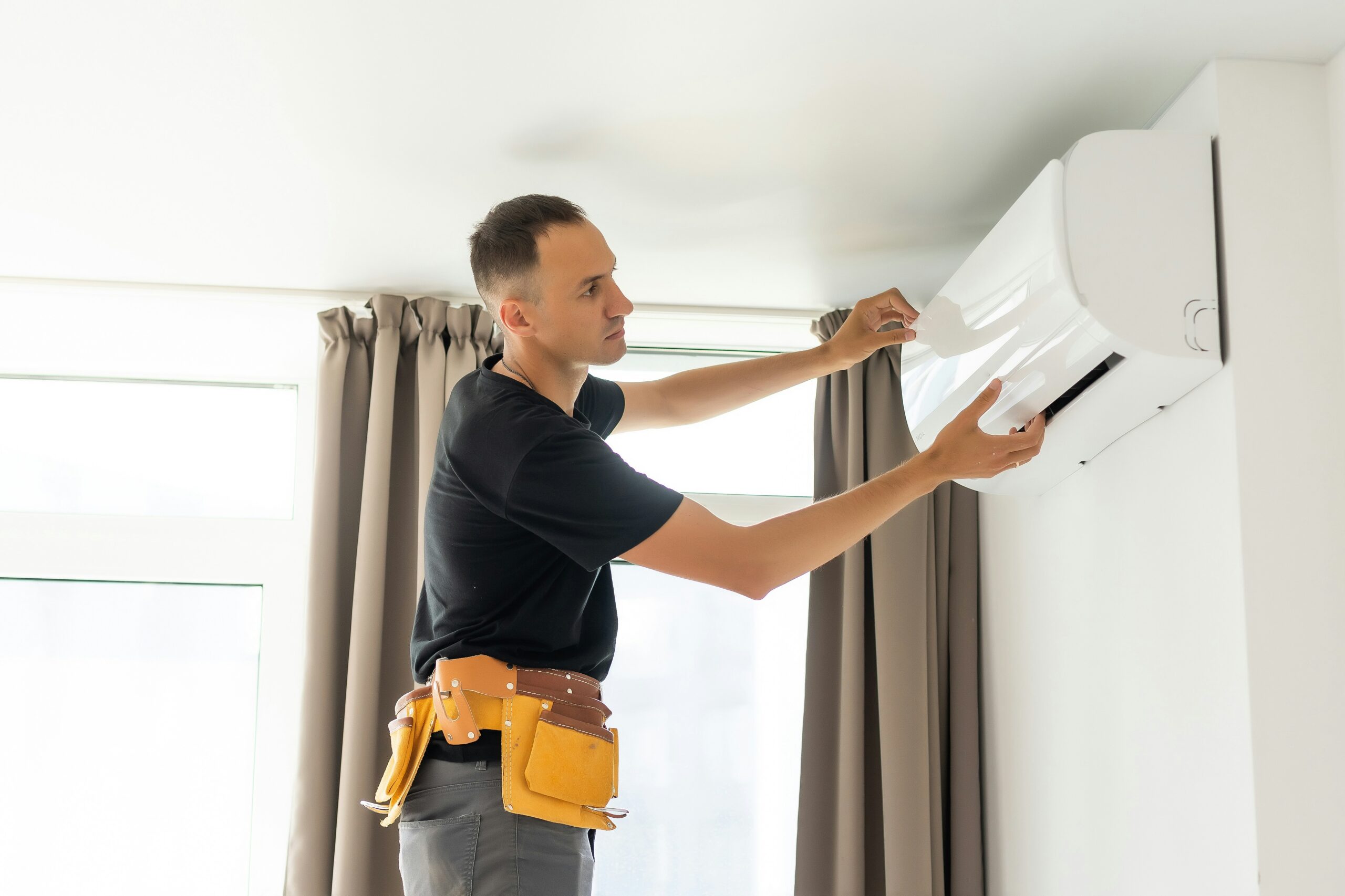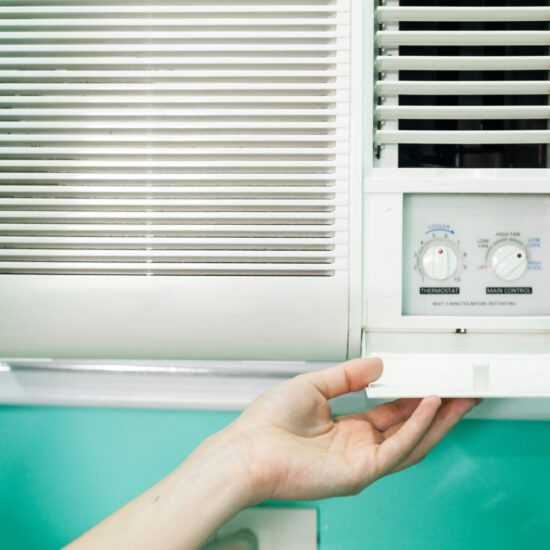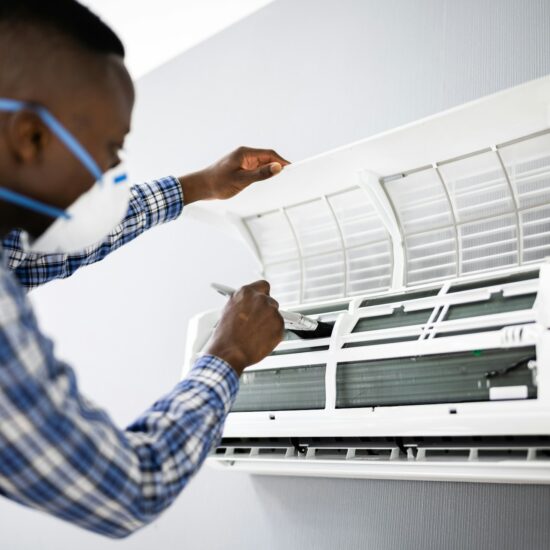When it comes to upgrading or installing a new HVAC system in your home, we understand HVAC financing should be a consideration. Understanding your financing options is essential to make an informed decision that aligns with your financial situation. A variety of loan types are available for this purpose, ranging from personal loans and home equity loans to options, and vendors like us offer financing options to help. Each financing method comes with distinct features such as varying interest rates, repayment terms, and eligibility requirements, making it important to compare them to find the best fit for your needs.
Navigating the landscape of HVAC financing can also open up opportunities for savings - for example our promotional deals that can reduce your overall cost. Considering factors such as loan amounts, repayment plans, and funding speed will help you tailor your financing choice. It's not just about finding the funds; it's about finding the right terms that complement your long-term financial health.
Understanding HVAC Financing
Financing your HVAC system can be a straightforward way to manage costs while ensuring your comfort at home.Benefits of Financing HVAC Systems
- Manageability: You can break down the large upfront cost of an HVAC system into manageable, monthly payments.
- Cash-flow Friendly: By financing, you preserve your cash reserves for emergencies or other investments.
Types of HVAC Financing
- Personal Loans: Unsecured loans from financial institutions with fixed interest rates and repayment terms.
- Home Equity Loans: Secured loans based on your home equity offering potential tax benefits.
- HELOC (Home Equity Line of Credit): A flexible, revolving line of credit secured against your home's equity.
- Affordable HVAC Financing: Specific financing options offered directly by HVAC dealers, possibly with promotional terms.
Evaluating Your Financing Needs
- Assess the total cost of the HVAC system including installation.
- Examine your credit score as it will impact your eligibility and interest rates.
- Consider the repayment term that best fits your budget; a longer term means smaller payments but more interest over time.
Types of Financing Options
When considering upgrading or installing a new HVAC system, various financing routes are available to you. Each offers different terms and benefits that may be suited to your financial situation.Personal Loans
Personal loans are unsecured loans provided by banks, credit unions, or online lenders. You can qualify based on your credit score and income. The interest rates are typically fixed, and you'll have a set repayment term with monthly payments.Credit Cards
Using credit cards for financing gives you a credit limit you can spend up to, with the flexibility to pay back over time. Ideal for smaller HVAC expenses, credit cards might offer rewards, but beware of potentially high interest rates if you carry a balance.Home Equity Loans
A home equity loan provides a lump sum and features a fixed interest rate. It is a second mortgage that uses your home's equity as collateral. You repay this loan in installments over a set period.HELOCs (Home Equity Lines of Credit)
A HELOC acts much like a credit card, with your home's equity serving as the credit line. Interest rates are typically variable, and HELOCs offer flexible withdrawal and repayment terms during the draw period.Affordable HVAC Financing
We offer financing options for the services our company will provide for your home. These are the benefits of financing through us:- Monthly payments to fit your budget
- Special terms and promotions
- Online account management and bill payment options
Government-Backed Loans
Government-backed loans, such as FHA Title I property improvement loans, provide funding for homeowners who might not qualify for traditional loans. These loans are secured by your home but often have lower interest rates and favorable terms.Eligibility and Requirements
When seeking financing for your HVAC system, lenders typically evaluate your creditworthiness and stability through specific criteria. Understanding these prerequisites can streamline your application process and improve your chances of approval.Credit Score Considerations
Your credit score plays a pivotal role in determining your eligibility for HVAC financing. Generally, you'll need a score that falls within the lender's required range, which could vary from fair to excellent. For instance, a score above 680 often facilitates favorable interest rates and terms.Income Verification
Lenders will ask for proof of income to ensure you have the means to repay the loan. Be prepared to provide documents such as:- Recent pay stubs
- Tax returns
- Bank statements
Employment History
A stable employment history indicates to lenders that you have a reliable source of income. You may need to have been employed in your current job for at least a few months, often six months to a year, or have a track record of steady employment over recent years.Home Ownership
Regarding HVAC financing, lenders might require you to be the homeowner of the property where the system will be installed. This demonstrates a long-term investment in the property and the usefulness of the system being financed.How to Apply for HVAC Financing
Applying for HVAC financing requires careful preparation and an understanding of the available options. The process involves gathering necessary documentation, completing the application accurately, and comprehending the interest rates and terms associated with your financing.Gathering Necessary Documents
Before applying for HVAC financing, you need to have all the necessary documents at hand. These typically include:- Proof of identity: A government-issued photo ID, such as a driver's license or passport.
- Proof of income: Recent pay stubs, W-2 forms, or tax returns to verify your earnings.
- Credit information: Lenders may perform a credit check, so know your credit score and have your credit history available.
- Proof of residence: Utility bills or a lease agreement to confirm your current address.
Application Process Detailed
To apply for HVAC financing, follow these specific steps:- Contact a dealer: Reach out to an authorized HVAC dealer; they can often help initiate the financing process.
- Choose the application method: You can often apply:
- Over the phone.
- Online through the financing application website.
- Using a mobile app provided by the dealer.
- Fill out the application: Complete all required fields with accurate information about your finances and the HVAC system you need.
- Submit the application: Review your application for errors before submitting it to avoid delays.
Interest Rates and Terms Explained
Interest rates and terms are crucial to understand when securing financing:- Interest Rates: They can vary based on your credit score and the lender's terms. Ensure you're getting a competitive rate based on current market conditions.
- Repayment Terms: These can range from short-term (12-24 months) to long-term (up to 60 months or more). Short-term loans typically have higher monthly payments but lower overall interest, while long-term loans have smaller monthly payments but accumulate more interest over time.
Understanding Interest Rates and Terms
When financing your HVAC system, interest rates and terms are crucial in determining your total repayment amount.Fixed vs. Variable Interest Rates
Fixed Interest Rates are constant throughout the life of the loan, meaning your monthly payments remain the same. This stability helps you plan your budget with predictability. In contrast, Variable Interest Rates can fluctuate based on market conditions, which could lead to lower initial rates but potentially higher payments in the future if interest rates increase.Short-Term vs. Long-Term Financing
Short-Term Financing generally means you will pay off your loan quicker, and it often has lower total interest costs. Typically, this means higher monthly payments. On the other hand, Long-Term Financing spreads out your payments over a longer period, reducing your monthly payment amount, but usually increases the total interest paid over the life of the loan.Impact of Financing on Credit Score
When you finance an HVAC system, lenders typically perform a credit check to determine your eligibility. This can be either a soft inquiry, which doesn't affect your credit, or a hard inquiry, which may slightly lower your credit score temporarily. Here's what you need to know:- Application: A hard inquiry can decrease your score by a few points. Multiple inquiries for the same type of loan within a 14-45 day period are usually treated as a single inquiry.
- Credit Utilization: An HVAC loan increases your total credit use. Ideally, keep your credit utilization below 30% of your available credit.
- Payment History: Making on-time payments can improve your score over time. Late or missed payments can significantly harm it.
- Credit Mix: An HVAC loan can diversify your credit types, potentially benefiting your score if managed well.
- Check your credit score and report for errors.
- Compare financing offers to find the best terms.
- Understand the effects of credit inquiries.
Budget Planning for HVAC Installation
When planning your budget for an HVAC installation, it's crucial to accurately estimate the costs involved and understand how financing can integrate into your financial planning.Estimating Overall Costs
To determine the total expense for your HVAC installation, begin by researching various HVAC models and their prices. Remember that the cost will vary depending on the size of your home and the specific system you choose. Here’s a quick breakdown:- Unit Cost: This is the price of the HVAC system itself, which can range from $2,000 to $5,000.
- Installation Fees: Professional installation can cost an additional $3,000 to $10,000, depending on several factors such as complexity and labor rates.
- Additional Components: Extras like ductwork modifications or advanced thermostat installation can add to your budget.
Incorporating Financing into Your Budget
After estimating the installation cost, explore financing options suited to your financial situation:- Personal Loans: Shop around for loans with the best interest rates and terms that fit into your monthly budget. A $7,000 loan at 11.2% APR, for example, could mean monthly payments of approximately $327 over two years.
- Home Equity Loans: Use the equity in your home to secure a loan, usually at a lower interest rate.
- Credit Cards: A viable option for immediate funding, but typically come with higher interest rates.
Financing for Energy-Efficient HVAC Systems
Purchasing an energy-efficient HVAC system can be a significant investment. You have options available for financing that can temper the initial cost impact: taking advantage of tax credits and rebates, and considering the long-term energy savings.Tax Credits and Rebates
Tax Credits: In some regions, you may qualify for tax credits when installing energy-efficient HVAC equipment. These credits directly reduce your tax liability, offering a dollar-for-dollar reduction in your taxes due.- Federal tax credits often cover a portion of the cost for qualifying systems.
- State and local incentives may also be available, with varying credit amounts.
- Utility rebates can provide a lump sum back on your purchase.
- Manufacturer rebates might be offered during promotional periods.
- Check the DSIRE database for state incentives.
- Contact your local utility company.
- Review offers from HVAC manufacturers’ websites.
Energy Savings Over Time
When you upgrade to an energy-efficient HVAC system, you're investing in lower utility bills for the future.- Lower Energy Costs: Energy-efficient systems consume less energy, resulting in lower monthly bills.
- System Longevity: High-efficiency units often have a longer lifespan.
- Return on Investment (ROI): Your initial investment could be recouped over time through energy savings.
- Track your monthly energy bills to see the reduction in usage.
- Use energy cost calculators to estimate potential savings.
Navigating Financial Hardship
When you face financial difficulties, the burden of an HVAC system expense can be overwhelming. However, understanding your financial options, such as loan modification programs and options for deferment and forbearance, can provide crucial relief.Loan Modification Programs
Loan modification programs are designed to adjust the terms of your loan to create a payment plan that aligns with your current financial capacity. If you're experiencing hardship, contact your lender to discuss the possibility of:- Extending the length of your loan term
- Reducing the interest rate
- Recapitalizing any arrears
Deferment and Forbearance Options
Deferment and forbearance allow you to temporarily suspend or reduce your loan payments. These options are particularly helpful in times of sudden financial strain. Here are points to consider:- Deferment: Payments are postponed, but interest might still accrue depending on the loan type.
- Forbearance: Typically allows for a suspension or reduction in payments for a short period, though interest almost always continues to accrue.
- The loan's interest rate and total cost over time.
- Prepayment penalties or fees.
- Your monthly budget and ability to make regular payments.
- The urgency of the HVAC installation or repair.
- The possibility of making a down payment to reduce the loan amount.
- Assess Your Budget: Be realistic about what you can afford. A higher interest rate can significantly increase the overall cost.
- Compare Options:
- Promotional Credit Cards: Often offer zero-interest periods.
- Fixed-rate Loans: Provide consistent monthly payments.
- Eligibility Criteria: Your credit score plays a crucial role. A higher score generally offers access to better terms.
- Additional Costs: Be mindful of any fees or penalties. Always read the fine print to avoid unexpected expenses.
- Professional Advice: Consulting with a financial expert can give you a clearer perspective.




